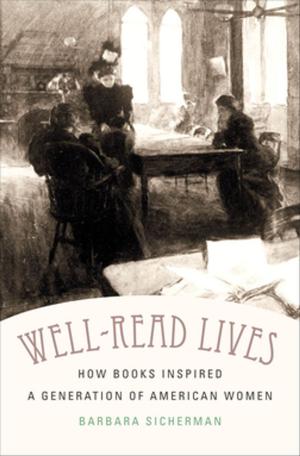| Author: | Tom Bradley | ISBN: | 9781301366200 |
| Publisher: | MadHat Press | Publication: | December 15, 2012 |
| Imprint: | Smashwords Edition | Language: | English |
| Author: | Tom Bradley |
| ISBN: | 9781301366200 |
| Publisher: | MadHat Press |
| Publication: | December 15, 2012 |
| Imprint: | Smashwords Edition |
| Language: | English |
Felicia's Nose was written by our late Founder, Carol Novack, annotated by Tom Bradley, and illustrated by Nick Patterson. We present to you the Annotator's Note that introduces the book:
"At the end of her life, Carol Novack was doing what must eventually be done by everyone who’s strong enough: she was squarely facing certain aspects of herself, her family, and her heritage that were not precisely excruciating, but, as she said, were 'interesting and worthy of painstaking examination.'
"Even before the cancer diagnosis, she was tallying up her life’s debits and credits, in particular the wheels and deals with Muter. The penultimate chapter of Felicia’s Nose is a confrontation between the eponymous heroine and her female parent, ending with something like a Pandora’s box being stashed under a bed. It’s unopened, and bursting with what we all know is inside.
"Being a writer, Carol’s method of self-excavation was literary, and she recruited my help, two shovels being better than one. She liked the way I’d glossed Kane X. Faucher’s sextuply schizoid impersonations in Epigonesia (BlazeVOX, 2010). That giant book fascinated Carol as the rarity of rarities: a new genre, something like a superficially nonfictional Pale Fire, taking place in real time as the primary text alternately rides roughshod over, and is sapped and subverted by, the critical apparatus.
"She wanted me to do to her what I did to Kane X. Faucher in Epigonesia: to dig under her characters and situations, to dissect her names, numbers, references, to turn her allusions, both deliberate and unconscious, inside out. Carol wanted a running commentary that furtively pursued—she cringed at the word—psychoanalytical strategies. She envisaged an infestation of ten-point type skittering along the bottom of her novel like army ants underfoot.
"'We need a literal subtext!' she cried.
"The relationship of a novelist with her annotator is a bizarre admixture of banter and intimacy. As we worked, certain passages of her novel began to emit unexpected, sometimes appalling reverberations. But Carol never failed, with surprising courage, to reassure me that we were on track—or at least we were groping along an alley in a not-excessively dark and horrendous inner city.
"Carol died before we could finish Felicia’s Nose. In what neither of us knew would be her last chapter, she comes forward and speaks in her own voice for the first time. She shouts encouragement directly down to me, where I toil in cackling paranoia at the bottom of the final page. Carol’s thinking about all the strange and possibly happy directions our book will follow next, and she says, 'I can’t wait to see…'
"She didn’t wait. I’ll never know what she saw."
—Tom Bradley, annotator
"A dog-whistle palimpsest, a riddling box of questions left unfinished at the author's death, a Winchester Mystery House of a book with graffiti notes from an alternative Zoharistic universe and illustrations transcribed from the depths of Bohu-Tohu, Felicia's Nose is an experimental novel based on the 'call and response' of an arcane Blues: the eternally absent author unraveling a tale from the other side of life, and the very much alive Tom Bradley answering each movement of the planchette with a drum roll cursive freighted with sentiments worthy of Sabattai Zvei."
—Jesse Glass, author of Lost Poet
Felicia's Nose was written by our late Founder, Carol Novack, annotated by Tom Bradley, and illustrated by Nick Patterson. We present to you the Annotator's Note that introduces the book:
"At the end of her life, Carol Novack was doing what must eventually be done by everyone who’s strong enough: she was squarely facing certain aspects of herself, her family, and her heritage that were not precisely excruciating, but, as she said, were 'interesting and worthy of painstaking examination.'
"Even before the cancer diagnosis, she was tallying up her life’s debits and credits, in particular the wheels and deals with Muter. The penultimate chapter of Felicia’s Nose is a confrontation between the eponymous heroine and her female parent, ending with something like a Pandora’s box being stashed under a bed. It’s unopened, and bursting with what we all know is inside.
"Being a writer, Carol’s method of self-excavation was literary, and she recruited my help, two shovels being better than one. She liked the way I’d glossed Kane X. Faucher’s sextuply schizoid impersonations in Epigonesia (BlazeVOX, 2010). That giant book fascinated Carol as the rarity of rarities: a new genre, something like a superficially nonfictional Pale Fire, taking place in real time as the primary text alternately rides roughshod over, and is sapped and subverted by, the critical apparatus.
"She wanted me to do to her what I did to Kane X. Faucher in Epigonesia: to dig under her characters and situations, to dissect her names, numbers, references, to turn her allusions, both deliberate and unconscious, inside out. Carol wanted a running commentary that furtively pursued—she cringed at the word—psychoanalytical strategies. She envisaged an infestation of ten-point type skittering along the bottom of her novel like army ants underfoot.
"'We need a literal subtext!' she cried.
"The relationship of a novelist with her annotator is a bizarre admixture of banter and intimacy. As we worked, certain passages of her novel began to emit unexpected, sometimes appalling reverberations. But Carol never failed, with surprising courage, to reassure me that we were on track—or at least we were groping along an alley in a not-excessively dark and horrendous inner city.
"Carol died before we could finish Felicia’s Nose. In what neither of us knew would be her last chapter, she comes forward and speaks in her own voice for the first time. She shouts encouragement directly down to me, where I toil in cackling paranoia at the bottom of the final page. Carol’s thinking about all the strange and possibly happy directions our book will follow next, and she says, 'I can’t wait to see…'
"She didn’t wait. I’ll never know what she saw."
—Tom Bradley, annotator
"A dog-whistle palimpsest, a riddling box of questions left unfinished at the author's death, a Winchester Mystery House of a book with graffiti notes from an alternative Zoharistic universe and illustrations transcribed from the depths of Bohu-Tohu, Felicia's Nose is an experimental novel based on the 'call and response' of an arcane Blues: the eternally absent author unraveling a tale from the other side of life, and the very much alive Tom Bradley answering each movement of the planchette with a drum roll cursive freighted with sentiments worthy of Sabattai Zvei."
—Jesse Glass, author of Lost Poet















